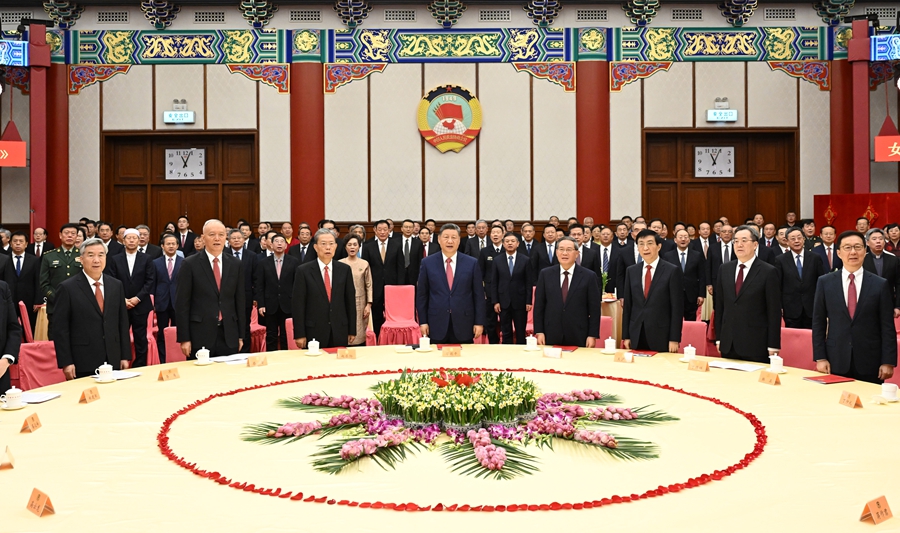UPCOMING ST. PETERSBURG GOVERNOR’S RACE DECLARED ILLEGAL.
UPCOMING ST. PETERSBURG GOVERNOR’S RACE DECLARED ILLEGAL.
The appeals collegium of Russia’s Supreme Court has dealt a blow to St. Petersburg Governor Vladimir Yakovlev, who is also the Fatherland-All Russia (OVR) coalition’s number three candidate for the December 19 State Duma election. Over the weekend, on December 11, the collegium ruled illegal the St. Petersburg legislative assembly’s October 8 decision to move up the St. Petersburg gubernatorial election from June 2000 to December 19 of this year. Its decision was a response to an appeal by the St. Petersburg chapter of Yabloko, which had charged that the legislative assembly’s October vote was accompanied by various violations of the assembly’s procedural norms, the city’s charter and Russia’s constitution. Opponents of the move charged, among other things, that some of its backers had used fake electronic voting cards during the actual vote, giving the initiative a higher vote than it should have received.
Yakovlev, whose bid to be re-elected as governor was recently endorsed by the Communist Party of the Russian Federation, denounced the decision, saying that he would appeal it to the Supreme Court’s presidium, which stands above the collegium. OVR’s coordinating council charged on December 11 that the appeals collegium’s decision was politically motivated and suggested that it would be appealed to both the Supreme Court’s presidium and the Constitutional Court, the country’s highest judicial body. The decision was welcomed by various politicians and movements besides Yabloko–including Boris Nemtsov and Irina Khakamada of the Union of Right-Wing Forces, and Yuri Boldyrev, President Boris Yeltsin’s one-time corruption fighter, who is challenging Yakovlev for the governorship of St. Petersburg (Russian agencies, December 11).
The Supreme Court’s appeals decision is particularly important because Yuri Luzhkov–Moscow mayor and OVR leader and the Kremlin’s main enemy–also moved up Moscow’s mayoral race from next summer to next Sunday (December 19). Given the precedent set with Yakovlev, Luzhkov’s decision to move up the vote might now be legally challenged, either before or after the election. Luzhkov’s main opponents in the mayoral race are former Prime Minister Sergei Kirienko, now a leader of the Union of Right-wing Forces coalition, and Pavel Borodin, the head of the Kremlin property department. Luzhkov is generally believed to have moved up the mayoral contest in order to have a post to return to if he decides to run for president next June and loses. He has insisted several times in recent months that he will not run for president and will instead back former Prime Minister and OVR leader Yevgeny Primakov, should Primakov announce his candidacy. Primakov has said several times that he has no plans to run for the presidency–as yet.
The Supreme Court appeals collegium decision on the St. Petersburg gubernatorial election puts a legal question mark over the races for Russia’s two largest cities–which are simultaneously two of the most important of the country’s eighty-nine regions. The decision comes on the heels of the controversy over the Central Election Commission’s (CEC) refusal to register Vladimir Zhirinovsky’s Liberal Democratic Party of Russia (LDPR) for the Duma race and its subsequent reversal of that decision, which put a question mark over the State Duma election.
Indeed, the tycoon and Kremlin insider Boris Berezovsky, who himself is running for a Duma seat representing a district in the Caucasus republic of Karachaevo-Cherkessia, said on December 10 that there is a “colossal potential” for the results of the Duma elections to be legally nullified. Because Russia is a member of the Council of Europe, Berezovsky said, the results of the December 19 election might be appealed in the European Court of Human Rights in Strasbourg, meaning that, in his words, a “colossal time bomb” has been planted under the Duma election (Russian agencies, December 10; Moscow Times, December 11). Either OVR or the pro-Kremlin Unity bloc might want to contest the results of the Duma election, depending on who wins and who loses.
LUZHKOV COZIES UP TO KPRF AS HE DECLARES RUSSIAN DEMOCRACY DEAD.


